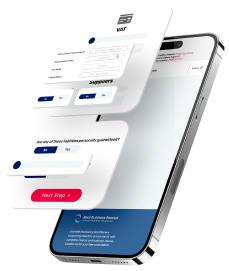
Understand your company's position and learn more about the options available
Require Immediate Support? Free Director Helpline: 0800 644 6080
Free Director Helpline: 0800 644 6080
Updated:
If you are having problems keeping up with the rent owed on your company premises, the first step should be to discuss the situation with your landlord. Many are surprisingly sympathetic to these types of issues, and would rather work alongside you to come to a mutually agreeable solution, than face the alternative of receiving no rental income at all. Be aware that falling into arrears with your rent could hint at deeper cash flow issues which should not be ignored.
With so many financial demands on businesses these days - rising business tax and ever-increasing energy bills –paying a commercial lease can be difficult even though it’s a priority payment.
The problem if you don’t pay is that your landlord can take enforcement measures quickly in order to collect their debt. In some cases they don’t even have to go to court to take the legal action that severely damages your business.
So let’s look at what a commercial lease is, and how you should proceed if you can’t pay.
Commercial leases are legally binding agreements that lay out the terms and conditions under which your business can occupy its premises. They state your duties and obligations under the agreement, rental payments, and the services the owner/landlord must provide.
So what happens if your business is unable to pay the lease, and what can you do to help yourself in this situation?


Get an instant understanding of your:
Plus much more ...
Start The 60 Second Test
Contacting your landlord should be your priority as soon as you know business cash flow won’t support your lease payment. Maybe you’re experiencing temporary financial difficulty due to events beyond your control, but if you quickly communicate this with your landlord they may be willing to offer more time to pay.
If your cash flow problems seem more long-term, however, the landlord still needs to be aware of the situation so they understand that you aren’t deliberately trying to avoid payment.
Is your company insolvent?
If your company is insolvent you have a number of legal responsibilities that you must adhere to. Taking steps to protect creditors from further losses by contacting a licensed insolvency practitioner can help ensure you adhere to these duties.
The team are available now - 0800 644 6080
60 Second Test Find Your Nearest Office
Can’t pay CBILS or Bounce Back Loan?
Don't worry - there are thousands of other company directors in the same position. If you are struggling to keep up with your Covid loan repayments, speak to a member of the Real Business Rescue team to discuss your options. It's Free & Confidential.
The team are available now - 0800 644 6080
Landlords have various options to recover debt if you fail to pay your commercial lease, including:
CRAR legislation can only be used to recover rent payments and associated VAT and interest, rather than service charges and other ancillary payments, and only when the premises are used purely for business with no residential aspect.
Having provided seven clear days’ notice bailiffs would enter your premises to identify goods for seizure and potential sale at auction – ‘clear’ days do not include Sundays and Bank Holidays.
Need to speak to someone?
If your company is struggling with unmanageable debts, squeezed cash flow, or an uncertain future, you are far from alone. We speak to company directors just like you every single day, and we are here to give you the help and advice you need.
Call our team today on 0800 644 6080
Being unable to pay your commercial rent is a serious situation, so it’s important to take action as soon as possible. One option is to secure a source of alternative funding, such as invoice finance or asset-based finance.
If you believe your business may be insolvent you should seek immediate assistance from a licensed insolvency practitioner, who will be able to advise on your best options. These could include formal renegotiation of your debts if the business owes money to more than one creditor, or possibly entering administration if you run a limited company.
Commercial leases are a complex area of business and it can be difficult to know if your landlord/the property owner is following the rules correctly. For professional guidance on this and other matters when you can’t pay your commercial lease, call our expert team at Real Business Rescue. We operate an extensive network of offices throughout the UK, and can offer you a free same-day consultation to quickly establish your position.
Still unsure whether liquidation is right for your company? Don't worry, the experts at Real Business Rescue are here to help. Our licensed insolvency practitioners will take the time to understand the problems your company is facing before recommending the best course of action going forward based on your own unique circumstances.

Complete the below to get in touch
For Ltd Company Directors
Get An Instant Understanding Of Your:
Plus much more ...
We provide free confidential advice with absolutely no obligation.
Our expert and non-judgemental team are ready to assist directors and stakeholders today.

Understand your company's position and learn more about the options available

Find your nearest office - we have more than 100 across the UK. Remote Video Meetings are also available.

Free, confidential, and trusted advice for company directors across the UK.